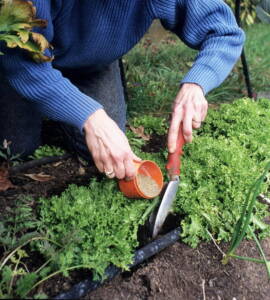No products in the cart.

Composted Manure: A Complete Guide to Organic Gardening
Composted Manure: A Complete Guide to Organic Gardening
Introduction
Are you looking to boost your garden’s health and productivity naturally? Composted manure might just be the secret ingredient you’re looking for. In this comprehensive guide, we’ll delve into everything you need to know about composted manure, from what it is to how to use it effectively in your garden.

Table of Contents
| Sr# | Headings |
|---|---|
| 1. | What is Composted Manure? |
| 2. | Benefits of Using Composted Manure |
| 3. | Types of Manure Suitable for Composting |
| 4. | How to Compost Manure |
| 5. | When and How to Apply Composted Manure |
| 6. | Composted Manure vs. Synthetic Fertilizers |
| 7. | Common Mistakes to Avoid with Composted Manure |
| 8. | Composted Manure: Environmental Impact |
| 9. | Using Composted Manure in Different Types of Gardens |
| 10. | Purchasing Composted Manure |
| 11. | Safety Precautions and Handling |
| 12. | FAQ: Frequently Asked Questions about Composted Manure |
What is Composted Manure?
Composted manure is essentially organic matter that has decomposed over time with the help of bacteria and other organisms. This process transforms raw manure into a nutrient-rich material that’s excellent for soil health.
Benefits of Using Composted Manure
Using composted manure offers a myriad of benefits for your garden:
- Enhanced Soil Structure: It improves soil texture, making it easier for roots to grow.
- Nutrient-Rich: Provides essential nutrients like nitrogen, phosphorus, and potassium.
- Slow-Release: Nutrients are released slowly, feeding plants over time.
- Water Retention: Helps soil retain moisture, reducing water needs.
- Environmentally Friendly: Organic and sustainable alternative to synthetic fertilizers.
Types of Manure Suitable for Composting
Not all manures are created equal when it comes to composting. Cow, horse, sheep, and chicken manure are among the most commonly used due to their nutrient profiles and availability.
How to Compost Manure
Steps to Compost Manure:
- Mix with Carbon-Rich Material: Combine manure with straw, leaves, or sawdust.
- Create Piles or Bins: Pile up the mixture and turn it regularly.
- Monitor Moisture: Keep the pile moist but not soggy.
- Aerate: Turn the pile regularly to aerate and speed up decomposition.
- Wait: Composting typically takes a few months to a year, depending on conditions.
When and How to Apply Composted Manure
Composted manure should be applied:
- In Spring or Fall: Best times for nutrient absorption.
- Before Planting: Mix into soil a few weeks before planting.
- As Top Dressing: Spread around plants during the growing season.
Composted Manure vs. Synthetic Fertilizers
Composted manure offers several advantages over synthetic fertilizers:
- Long-Term Soil Health: Builds soil structure and fertility over time.
- Sustainable: Recycles organic waste into valuable resources.
- Safe for Beneficial Organisms: Supports soil microbes and earthworms.
Common Mistakes to Avoid with Composted -Manure
- Overapplication: Can lead to nutrient imbalances.
- Fresh, Uncomposted- Manure: May burn plants and introduce pathogens.
- Incorrect Application Timing: Apply at the wrong time can lead to nutrient loss.
Composted- Manure: Environmental Impact
Using composted- manure is environmentally friendly:
- Reduces Waste: Repurposes animal waste into useful soil amendments.
- Reduces Chemical Use: Less reliance on synthetic fertilizers.
- Improves Soil Health: Leads to healthier, more productive soils.
Using Composted -Manure in Different Types of Gardens
Composted -manure can be used in:
- Vegetable Gardens: Boosts vegetable growth and productivity.
- Flower Gardens: Improves flower color and bloom size.
- Lawns: Enhances grass health and reduces need for chemical fertilizers.
Purchasing Composted -Manure
When purchasing composted- manure, consider:
- Source: Know where the manure comes from.
- Quality: Look for well-composted, dark, crumbly material.
- Quantity: Calculate how much you need based on garden size.
Safety Precautions and Handling
Safety Tips:
- Wear Gloves and Mask: Protect yourself from potential pathogens.
- Store Properly: Keep in a covered, well-ventilated area.
- Wash Hands: After handling manure, wash hands thoroughly.
FAQ: Frequently Asked Questions about Composted- Manure
Is composted- manure safe to use in vegetable gardens?
Yes, as long as it’s fully composted, it’s safe and beneficial for vegetable gardens.
How often should I apply composted -manure?
Apply once a year as a soil amendment, and as a top dressing during the growing season.
Can I compost fresh manure directly into my garden?
No, fresh manure can burn plants and may contain harmful pathogens. Compost it first.
Where can I buy quality composted- manure?
You can find it at garden centers, nurseries, or local farms that compost their manure.
What should I look for in good quality composted- manure?
Look for dark, crumbly material that’s free from large clumps and odors.
Conclusion
In conclusion, composted- manure is a powerful, natural fertilizer that can transform your garden. By understanding its benefits, how to use it effectively, and taking proper precautions, you can ensure a thriving garden that’s both sustainable and productive.
Whether you’re growing vegetables, flowers, or maintaining a lawn, composted- manure offers a sustainable way to enhance your garden’s health and yield.
Remember, nature works best when we work with it. Embrace the power of composted -manure and watch your garden flourish!
Go and turn on towards organic farming to save future and thire save childs:
Elevate Plant Growth with Premium Bone Powder – Buy Now!
Organic Cow Dung Compost: Transform Your Garden Naturally
Premium Humic Acid for Healthy Plants | Enhance Soil & Boost Growth
Boost Plant Growth Naturally with Mustard Cake | Organic Fertilizer
Transform Your Garden with NPK Fertilizer | Boost Growth by 30%
Premium Perlite for Enhanced Gardening | Buy Now
Live Earthworms with Enhance Your Garden (soil health)
1 Neem Khali: Unveiling the Wonders of Nature
1Transform your garden with vermiwash-buy now
1 Premium quality Vermicompost [ केचुआ खाद ]
Follow us:
Tagged Incomposted manure




